Eugene McCarthy
He's one of those uncommon men who puts his courage in the service of his country, and whose eloquence and energy are at the side of what is right and good.
-Lyndon B. Johnson, Former President
Eugene Joseph McCarthy was born on March 29, 1916, in the small Central Minnesota farming town of Watkins. His father, the son of Irish immigrants, was a livestock buyer and a storyteller. His mother, from devout Bavarian stock, was a gentle influence who raised four inquisitive children.
McCarthy attended the local Catholic school and was known in Watkins for being extremely bright, well-behaved and a voracious reader. He was also an excellent athlete and loved sports, particularly baseball and hockey. He left home for Collegeville, Minnesota at the age of 15 to finish high school at Saint John's Preparatory School, and he subsequently attended Saint John's University.
McCarthy has been described by his teachers at Saint John's University as "brilliant, and a student who had set a standard that was...one of our all-time records." He was also known for his wit. His classmates referred to him as the "Watkins Wonder." While in college he continued to be passionate about sports. A lanky, 6-foot-4 first baseman, he played semi-pro baseball for the Great Soo League during the summers, and in 1934-35, he was top scorer on Saint John's University's hockey team, taking it to its first state championship. He graduated from Saint John's University with highest honors in 1935 at the mere age of 19.
From 1935-40, McCarthy taught at public high schools in Tintah and Kimball, Minnesota and Mandan, North Dakota, where he met his future wife, Abigail Quigley, also a teacher. He earned a master's degree in economics and sociology from the University of Minnesota in 1939, returning to Saint John's to teach economics and education in 1940. In 1943, considering the contemplative life of a monk, he became a Benedictine novice at Saint John's Abbey. Although McCarthy left the novitiate after nine months, his Catholicism, "refined and reinforced by his years at Saint John's, was the single most important influence on his intellectual life," according to one biographer.
After leaving the novitiate, McCarthy enlisted in the Army, serving as a code breaker for the Military Intelligence Division of the War Department in Washington, D.C. In 1945, he returned to Minnesota and married Abigail, with whom he would eventually have four children and who would greatly influence his political career. After marriage, Abigail and Gene farmed in Watkins for a brief period. He then joined the faculty of St. Thomas College (now the University of St. Thomas) in St. Paul, Minnesota in 1946, where he taught economics and sociology until he entered politics in 1949.
While at St. Thomas, McCarthy became increasingly interested in politics and launched a successful campaign for a Democratic seat in the House of Representatives, where he served from 1949-1959. His genial nature and good humor made him a popular newcomer in the House, where his wit earned him the nickname "the Needle."
In 1958, McCarthy was elected to the United States Senate and began to attract more national attention. He made the nominating speech for Adlai Stevenson at the 1960 Democratic National Convention. After President Kennedy's assassination, McCarthy was considered for the vice presidency that Hubert Humphrey ultimately won.
In 1967, he announced his candidacy for the 1968 Democratic presidential nomination as a direct challenge to President Lyndon B. Johnson's Vietnam policies. His antiwar position won wide admiration and brought thousands of supporters, especially among the young, into the political process. His strong showing in the March 1968 New Hampshire presidential primary is widely considered to have persuaded Johnson to withdraw his candidacy for reelection and to have brought Senator Robert F. Kennedy into the race. McCarthy was ultimately defeated for the Democratic nomination by Hubert H. Humphrey. McCarthy left the Senate in 1971. He launched two more unsuccessful bids for nomination to the presidency, in 1972 and 1992, as well as an unsuccessful bid for the Senate in 1982.
After leaving the Senate, McCarthy worked for a time in publishing and higher education. In 1978, he took up primary residence in rural Rappahannock County, Virginia and devoted much of his time to speaking engagements and writing, eventually publishing more than 20 books of poetry and memoir/political commentary. The last of these, Parting Shots From My Brittle Bow: Reflections on American Politics and Life, was published in January 2005.
He and Abigail had separated in 1969 but remained on friendly terms. One of their daughters Mary, died in 1990, and Abigail died in 2001. McCarthy is survived by son Michael, a medical editor in Seattle, and daughters Ellen, of Bethesda, Maryland, a Democratic aide to the U.S. House Administration Committee, and Margaret, a veterinarian in Takoma Park, Maryland. A brother, Austin McCarthy of Willmar, Minnesota, a sister Marian Enright of Walnut Creek, California, and six grandchildren also survive.
ADVERTISEMENT
BY
Looking for more information?
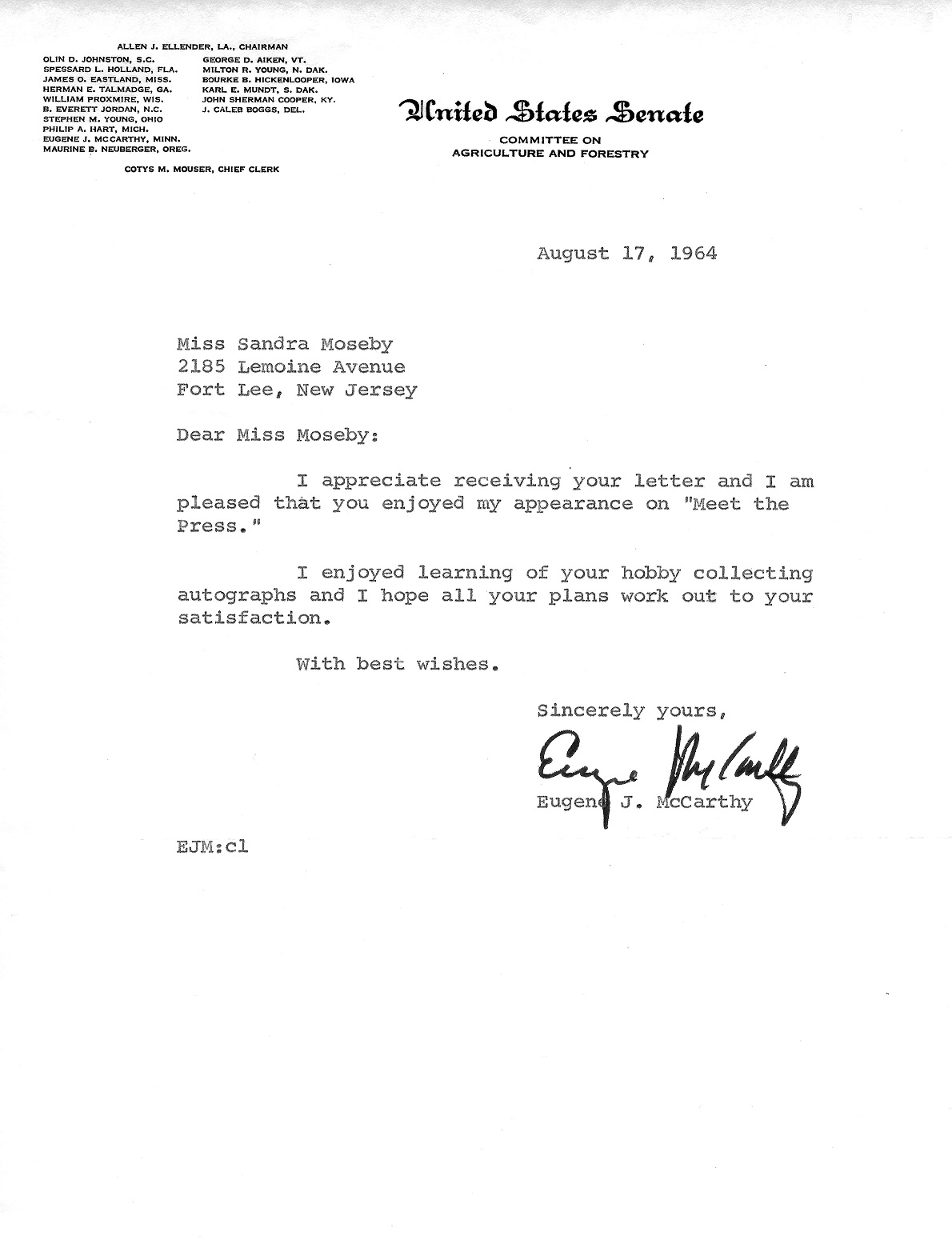
 Amanda S. Stevenson
Amanda S. Stevenson 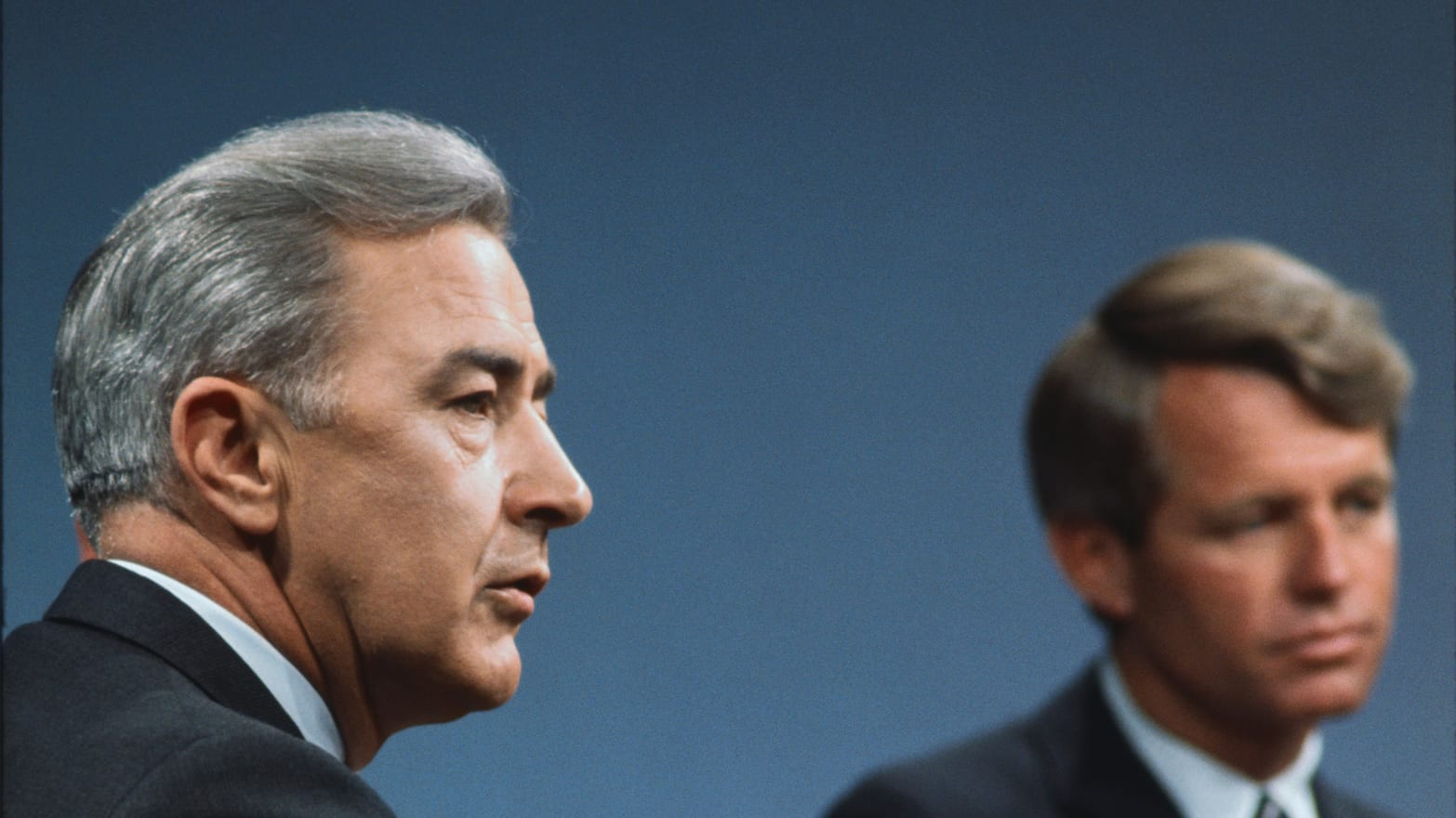
 Amanda S. Stevenson
Amanda S. Stevenson 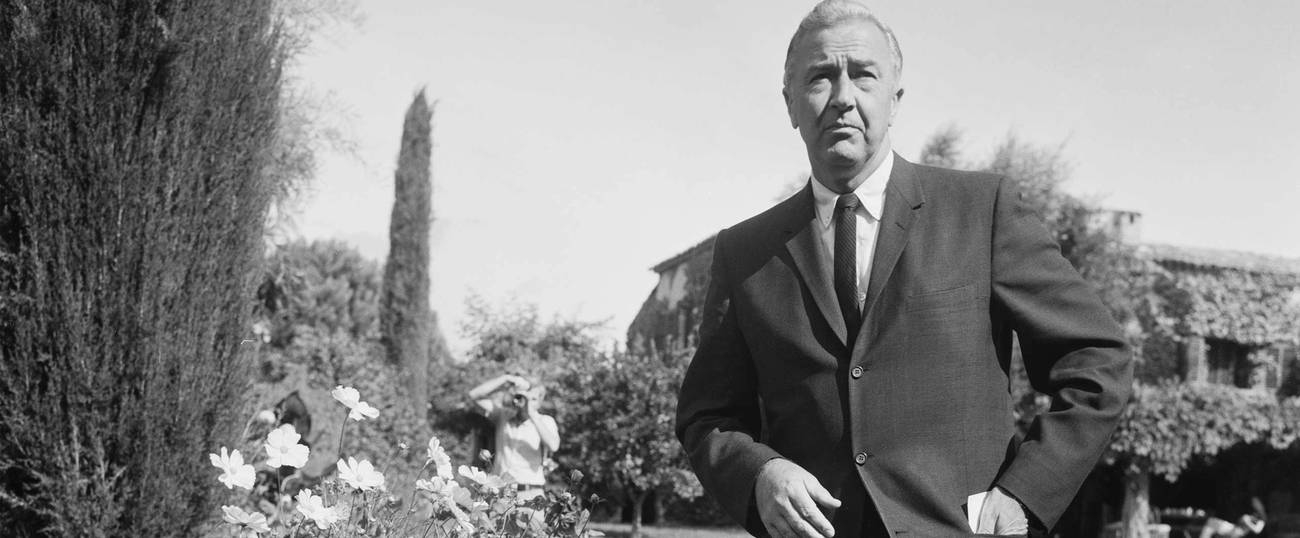
 Amanda S. Stevenson
Amanda S. Stevenson 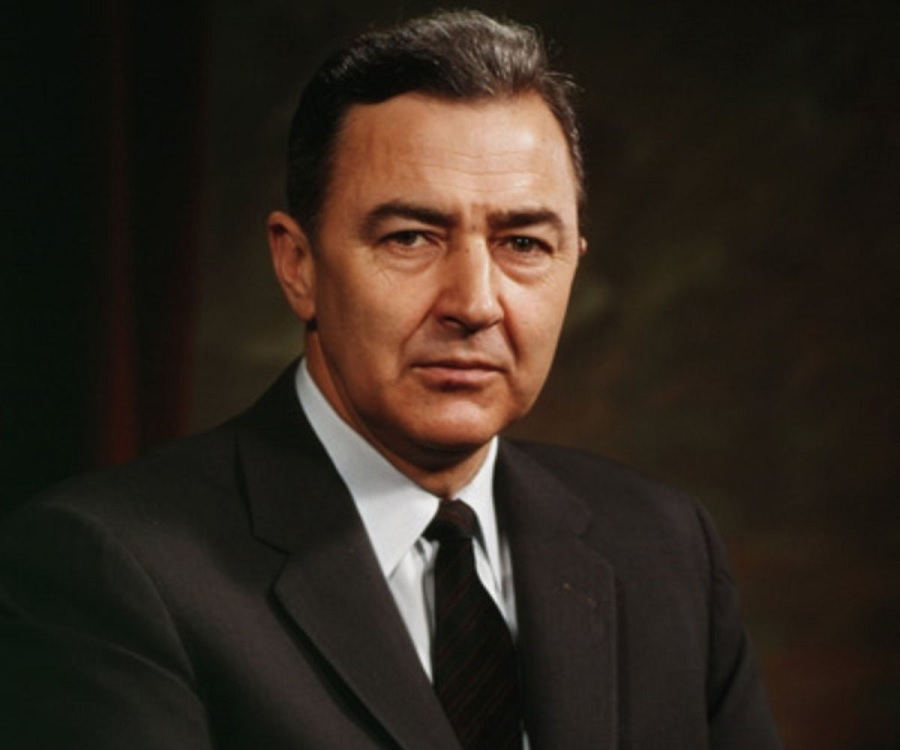
 Amanda S. Stevenson
Amanda S. Stevenson 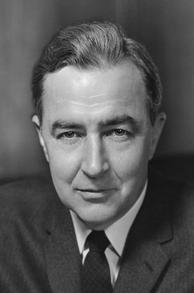
 Amanda S. Stevenson
Amanda S. Stevenson 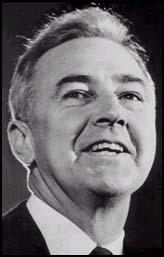
 Amanda S. Stevenson
Amanda S. Stevenson 